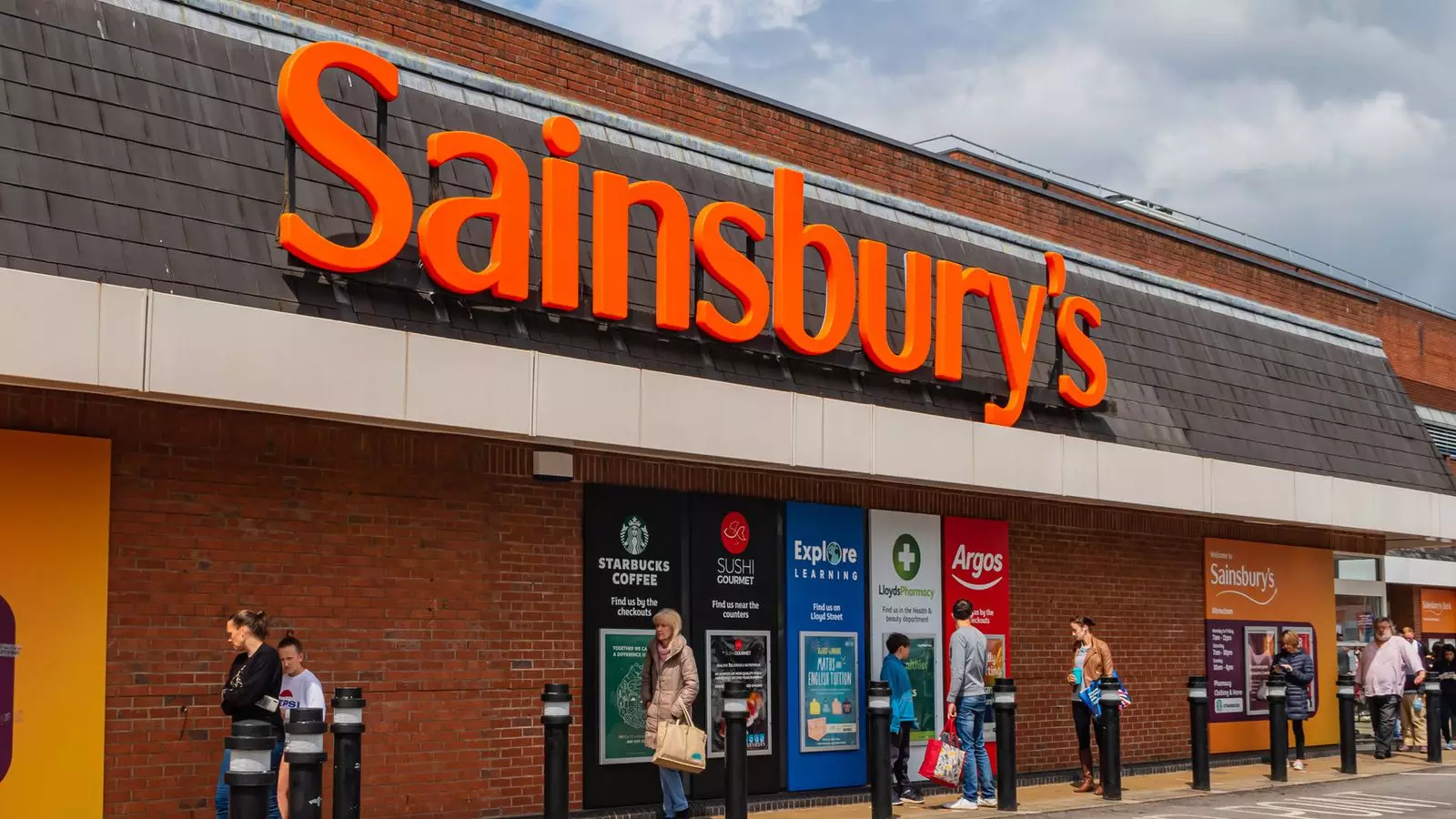In a move that has sent shockwaves through the retail sector and drawn significant media scrutiny, Sainsbury’s has announced plans to eliminate over 3,000 jobs as part of a strategic overhaul. This restructuring, which includes a dramatic reduction in senior management positions and the closure of all 61 in-store cafes, is the supermarket’s response to an increasingly difficult economic landscape. It reflects broader trends affecting the retail industry, where tightening finances and rising operational costs are forcing companies to reassess both staffing and services.
Sainsbury’s has asserted that these changes are necessary to maintain operational efficiency amidst soaring costs attributed to a challenging economic environment. The chain’s leadership, particularly Chief Executive Simon Roberts, has communicated the need for tough decisions aimed at ensuring financial sustainability. The closures of cafes and specialized food counters, which Sainsbury’s claims are underused, suggest a focus on essential services that drive profitability. While these actions are intended to bolster their bottom line, they starkly underline the delicate balance between cost management and workforce stability.
The company’s recent statements evoke a feeling of urgency; a need to adapt rapidly to external pressures. Roberts highlighted an impending tax increase that would impose an additional financial burden, likening it to a “barrage” of costs that the company could not absorb. Sainsbury’s, alongside other retailers, faces pressures from rising costs of raw materials, labor, and logistics, which have all been exacerbated by global inflationary trends.
The announcement of job cuts and service disruptions naturally raises concerns about the workforce’s welfare. With over 148,000 employees, the impact of losing thousands of jobs reverberates across communities reliant on these positions for economic stability. Unions, particularly Unite, have condemned the move as an example of corporate greed, accusing the company of prioritizing profits over its employees’ livelihoods. This backlash raises significant ethical questions about the responsibilities of large corporations toward their workers during challenging economic times.
The decision to move forward with these layoffs seems paradoxical—just two weeks earlier, Sainsbury’s had announced significant pay raises for its store workers, a decision ostensibly aimed at bringing some relief amid rising living costs. This contradiction places Sainsbury’s in the crosshairs, as employees and the public grapple with the implications of their actions. Critics argue that the cuts undermine the company’s professed commitment to its staff, raising questions about its corporate ethos and long-term vision.
The current economic climate plays a pivotal role in influencing corporate decisions like those of Sainsbury’s. The significant increase in taxes imposed by the UK government, aimed at plugging a fiscal gap largely inherited from previous administrations, has added strain on businesses across the spectrum. Budget policies that disproportionately affect retailer margins have raised alarms among industry spokespeople, suggesting a grim outlook for job security and investment.
Roberts’ remarks reflect a critical juncture for retailers, highlighting the operational challenges they face due to external fiscal pressures. Industry bodies warn that these costs can stifle growth, lead to job losses, and ultimately harm the very workforce that the government claims to protect. As retailers like Sainsbury’s scale back, the long-term consequences could ripple through the economy, affecting consumer confidence and spending.
Navigating a path forward will require Sainsbury’s and other corporations to actively engage in dialogue with their employees and stakeholders. As the company embarks on its proposed changes, establishing transparency in communication will be essential. Facilitating consultations with affected parties can mitigate some tensions and reassure employees about their future prospects.
Moreover, Sainsbury’s creates an opportunity for itself to re-evaluate its corporate values and commitment to its workforce. The backlash from groups like Unite could serve as a rallying cry for the company to adopt more socially responsible practices, potentially reshaping its public image. Companies that navigate these challenging waters thoughtfully may not only preserve their operational integrity but also rebuild trust with consumers and employees alike.
As Sainsbury’s grapples with its impending workforce reduction, the incident encapsulates broader concerns surrounding the retail industry and its future. These job cuts, while framed as a necessary business adjustment, raise fundamental questions about corporate ethics, responsibilities, and the long-term effects on the economy. The landscape ahead is fraught with challenges, yet it is crucial for companies like Sainsbury’s to strike a balance between maintaining profitability and upholding a steadfast commitment to their workforce and communities. The decisions made now will shape not only the future of Sainsbury’s but also set a precedent for the retail sector in general.


Leave a Reply